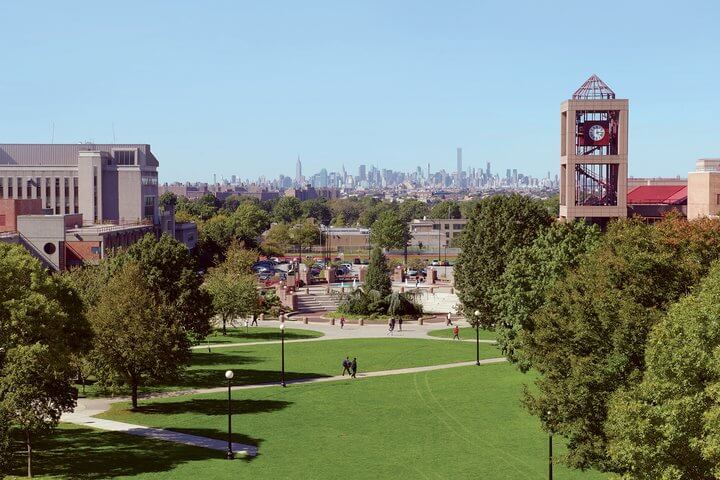
Queens College (Photo Courtesy of Queens College)
Aug. 25, 2020 By Allie Griffin
Congresswoman Carolyn Maloney penned a letter to the City University of New York (CUNY) urging the administration to reverse its decision to layoff nearly 3,000 employees.
CUNY decided to not renew the contracts of about 2,800 employees — mostly adjunct professors and part time staff members — across its 25 colleges for the fall semester last month ahead of budget cuts from the city.
Maloney, along with seven other Congress members, criticized CUNY for the layoffs after the federal government provided millions in funding to the school system.
“We are deeply concerned that CUNY is conducting mass layoffs when so much federal funding was allocated to avoid loss of employment and subsequent loss of healthcare insurance for hundreds of our constituents,” they wrote in a letter sent Monday to the CUNY Chancellor and Chair of the CUNY Board of Trustees.
The lawmakers noted that they fought for funding for the school system in the CARES Act and secured $132 million in institutional support for CUNY colleges.
The cost of keeping the 2,800 employees on payroll for the fall semester would be about $30 million, based on the current semester’s data, according to the Congress members. That amount is just a fraction of the CARES funding allocated for the purpose of keeping people’s jobs, they said.
“We are dismayed that in the midst of this pandemic you have decided to lay off nearly 3,000 employees, when the CARES institutional support funding was intended to help keep faculty on payroll,” they wrote in the letter.
The representatives said most of the laid-off employees were adjunct professors who collectively taught thousands of courses each term. These courses will either have reduced class sizes or be cut entirely, they added.
“The livelihoods and health of CUNY employees are at stake, but equally at risk is educational quality for the students,” they state in the letter.
Maloney was joined by New York Congress Members Max Rose, Kathleen Rice, Thomas Suozzi, Adriano Espaillat, José Serrano, Eliot Engel and Sean Patrick Maloney in signing the letter.
Together, the representatives urged CUNY to “maintain worker employment and health insurance to the greatest extent possible in these precarious times.”
The CARES Act also awarded $118 million in emergency financial aid for CUNY students.
CUNY was unable to be reached for immediate comment.
